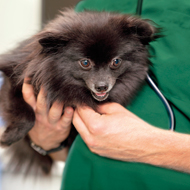VN title petition now closed

Defra responded to the petition in January of this year, saying it did not recommend that parliament give the title legal protection.
A petition urging the government to legally protect the 'veterinary nurse' title has now closed with just under 37,000 signatures.
The petition was launched by the RCVS in August last year and gained 10,000 signatures within the first week. When it closed on 14 February 2016, a total of 36,862 people had signed it.
Currently, anyone can call themselves a veterinary nurse as the title is not legally protected. The RCVS campaign called for legislation to criminalise any improper use of the term, so that only RCVS-registered professionals with the relevant education and training could use the title.
Defra responded to the petition in January of this year, saying that while it recognised the importance of veterinary nurses, it did not recommend that parliament give the title legal protection.
Chair of the VN Council Liz Cox said that while she was "disappointed" by Defra's response, the council would continue to argue that the veterinary nurse title should be protected.
On a positive note, she said the petition had raised public awareness of what veterinary nurses do and revealed a high level of support from veterinary nurses, veterinary surgeons, the public and MPs.
Defra has, however, agreed to work with the RCVS to review Schedule 3 of the Veterinary Surgeons Act - which outlines the procedures that can be performed by a registered veterinary nurse. It is hoped new ways may be found to bolster the nursing profession.
A joint RCVS and BVNA initiative called VN Futures aims to help veterinary nurses to prepare for and shape their future. The two organisations will also use this project to identify ways to strengthen and raise awareness of the profession.
Liz Cox said it is important that veterinary nurses and veterinary surgeons continue to promote and explain the nurse title to clients.
"Good veterinary nursing can make a huge difference to the outcome and experience for both the animal and the client, we do a great job and we need to tell the public."



 The RCVS has announced a new version of its 1CPD mobile app, with enhanced features for veterinary surgeons and veterinary nurses to record their continuing professional development.
The RCVS has announced a new version of its 1CPD mobile app, with enhanced features for veterinary surgeons and veterinary nurses to record their continuing professional development.